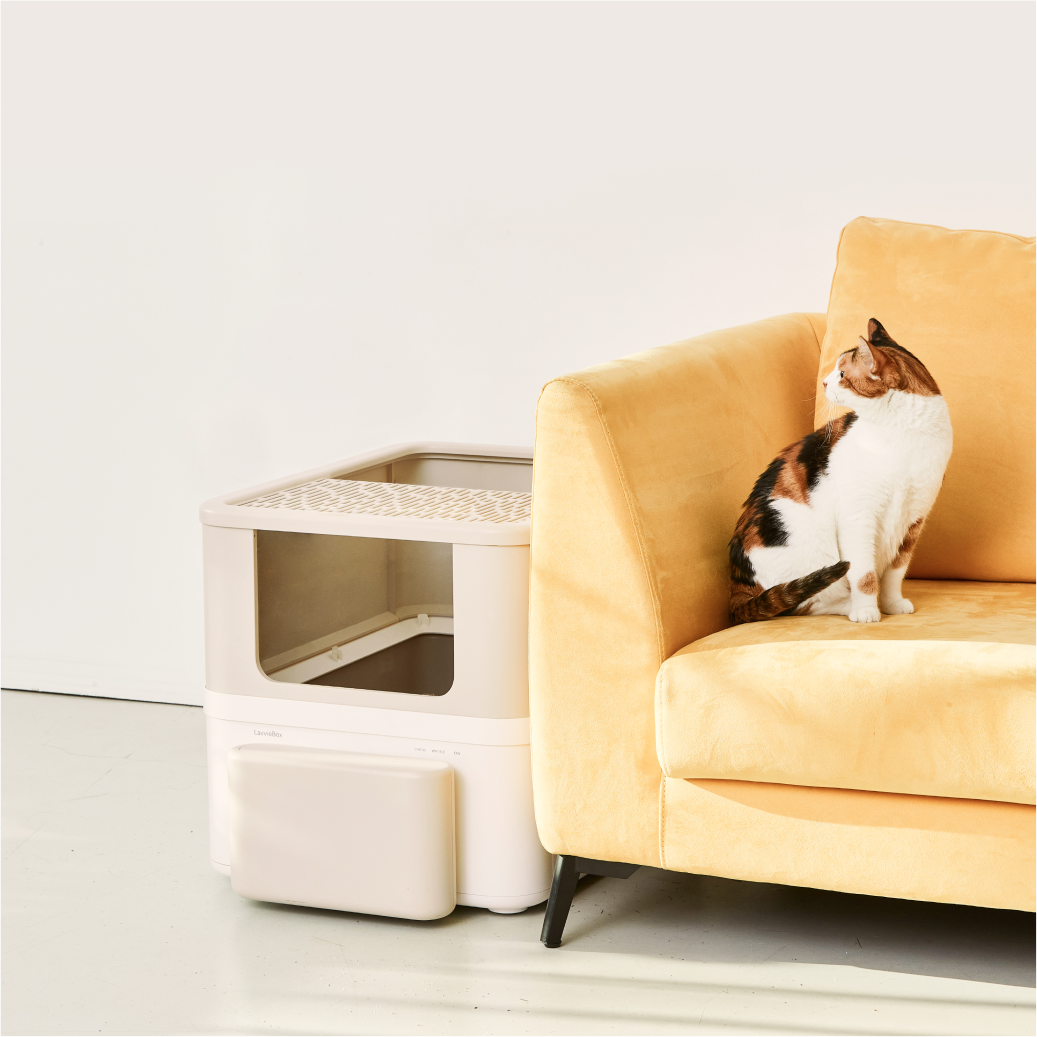Why Do Cats Sit and Sleep Inside Litter Boxes?

Should you find yourself pondering, “What could be the reason for my cat’s presence in the litter box?” There are several reasons behind this. Additionally, there are certain ways to guide your feline companion out of the box and back to their customary demeanor.
Here are plausible explanations for why cats choose to sit and sleep inside litter boxes:
Seeking a Safe Haven

When introducing a new cat into your household, their initial reactions might differ from your expectations. Newly adopted felines often grapple with stress, which can manifest through various symptoms such as alterations in grooming habits, reduced appetite, skittish behavior, or hiding in unusual spots – including their litter box.
For cats adopted from shelters, the litter box could represent a comforting familiarity in an unfamiliar setting. Moreover, enclosed litter boxes provide a secure sheltered space. When addressing the situation of a new cat spending an excessive amount of time in the litter box, the following measures are advisable:
Exercise Patience: While it might be challenging, allowing your new companion adequate time to adapt is key to resolving the issue. Individual adjustment periods can significantly vary, but with a nurturing and affectionate environment, your cat is likely to transition from the litter box to your embrace.
Enhance Hygiene: Increasing the frequency of litter box cleaning can encourage your cat to explore beyond it. Regular waste removal eliminates recognizable scents that could otherwise draw them back. Additionally, maintaining a clean environment is essential for your cat's well-being.
Looking for Fun

While young kittens acquaint themselves with the litter box, mature cats also partake in this unorthodox playtime. Several reasons prompt cats to engage in litter box play:
Insufficient Stimulation: Should your commitments consume your time, leaving your feline companion yearning for amusement, they might resort to the litter box for recreation. The absence of regular engagement and play sessions can drive cats to transform their litter area into a makeshift playground.
Feral Instincts: In their natural habitat, cats resort to dust bathing, which aids in shedding excess fur and eliminating bacteria causing discomfort and itchiness. For indoor cats, the litter box could simulate this instinctual behavior in the absence of outdoor access.
Though innate tendencies are challenging to modify, myriad methods exist to divert your pet's attention away from the litter box. Acquiring novel toys, carving out dedicated play intervals, and illustrating alternative sources of enjoyment can effectively steer your feline away from their litter box playground.
Litter Related Concerns

If your cat appears reluctant to exit the litter box, it could signify their dissatisfaction with certain aspects. Some common litter-related factors that might perturb your feline companion include:
Transition to New Litter: Alterations such as switching from soft to crystal-based litter or changing brands can provoke resistance from your cat. Adapting to new litter often requires a few days, but if their discontent persists after a couple of weeks, reverting to their former litter might be prudent.
Hygiene Matters: Paradoxically, a litter box's state might cause your cat to linger within it. If the litter box isn't kept clean, your cat could be using this behavior as a means to draw your attention. Moreover, an unsanitary litter box compels your cat to expend additional effort to locate a tidy spot for their activities. Maintaining cleanliness and introducing fresh cat litter can address this concern.
Consider diversifying your cat's options for personal space by incorporating supplementary litter boxes throughout your residence.
Possible Medical Concern
Among the various explanations for your cat's peculiar conduct, a noteworthy medical factor to consider is the potential presence of a blockage. This obstruction can manifest in different forms:
- Urinary Tract Infection
- Feline Interstitial Cystitis
- Kidney Stones
These medical conditions are manageable under the guidance of a qualified veterinarian. If uncertainty prevails regarding the existence of a medical issue, seeking professional advice remains a prudent course of action.
The discomfort of our cherished pets is a distressing sight. Thus, it's advisable to retrieve the cat carrier and transport your feline companion to a reputable veterinarian for thorough evaluation and appropriate care.
Expressing Territory

In households hosting multiple cats, occasional interpersonal dynamics can unfold. Although cats generally coexist harmoniously, the introduction of a new feline member can prompt initial struggles for dominance.

In such scenarios, it's not unusual for a cat to establish their territory by remaining within their litter box. This behavior involves marking the area with their scent glands, conveying a clear message to other cats to maintain distance. To foster amicable interactions with a territorial cat, consider the following measures:
Temporary Separation: Allot a segregated space for your territorial cat, keeping them apart from other felines for a defined period. This isolation offers them an opportunity to regain composure and rebuild their sense of security. Subsequently, you can reintroduce them to fellow pets gradually within a controlled setting.
Promote Positive Associations: Foster favorable associations among your cats by engaging in communal feeding and play sessions. Creating positive experiences related to the presence of other animals can significantly facilitate their adjustment.
Implementing steadfast routines, consistent feeding schedules, and designating special resting areas can significantly enhance the comfort of a territorial cat. By mitigating potential stressors, you're more likely to cultivate a composed and tranquil atmosphere among your feline companions.



